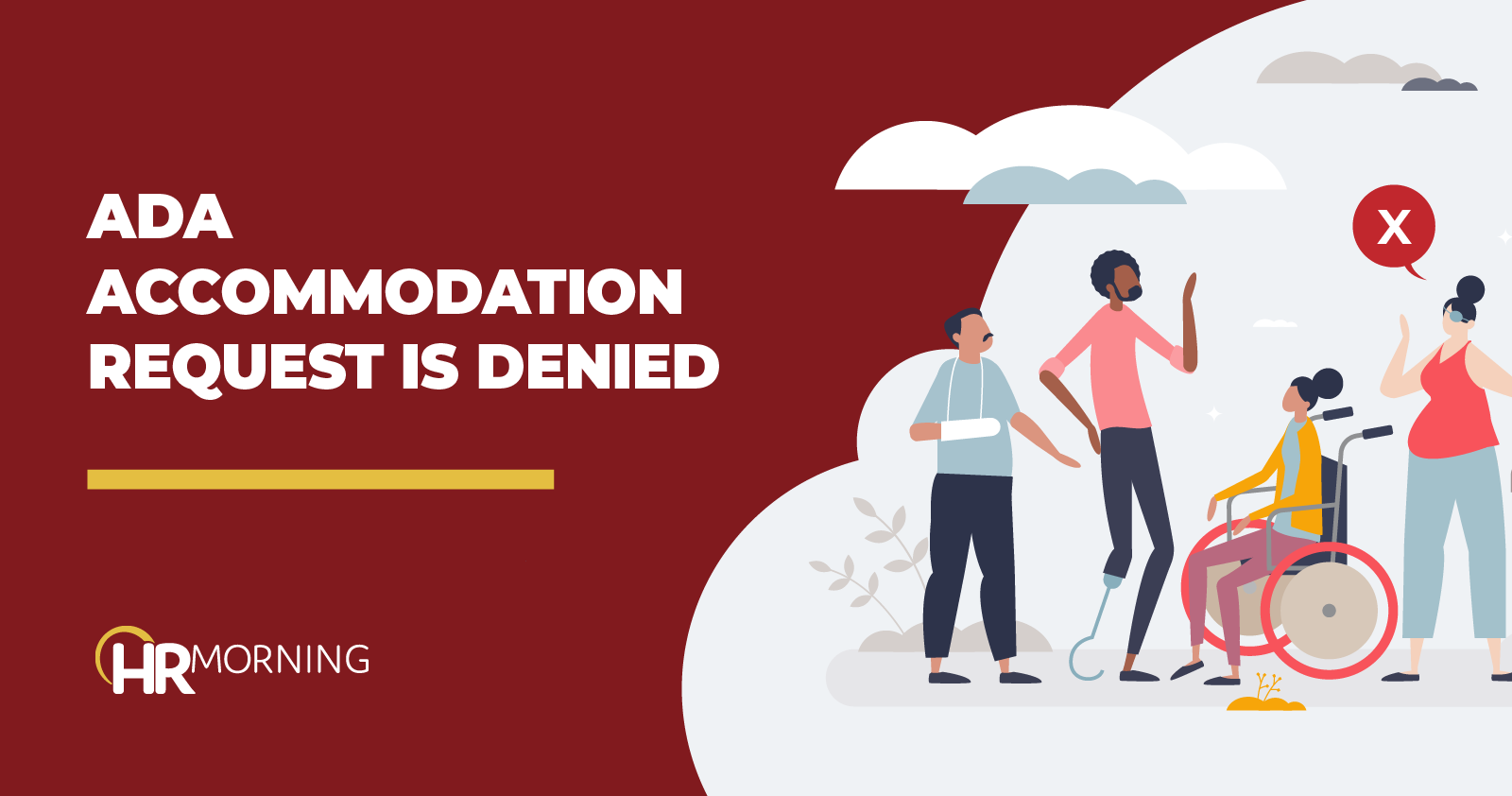When an ADA accommodation claim is based on the denial of a request to be excused from performing a specific job function, there’s one defense that works best.
The ideal response for the employer: Excusing performance of the job function at issue is not required because the function is essential to the job.
Of course, that defense works only if the job function is truly “essential.” (Stay tuned for more on that below.)
The defense worked successfully for United Services, Inc., a domestic violence center operator, in a case filed against it by Dawn Persechino, who worked for United as an adjunct counselor on a per diem basis.
Job description spells it out
The first page of the job description for that position said that the ability to work all shifts was an essential job function. Persechino signed a form confirming that she received a copy of the job description. This ability to perform all shifts meant employees in the position had to be able to be “frozen into” a subsequent shift – meaning if they were working a shift and no one was available for the next one, they had to stay.
Persechino picked up shifts at United when there were not enough other employees to staff its shelters, which are always open.
United divided its workday into three shifts: 7:00 a.m. to 3:30 p.m., 12:30 p.m. to 9:00 p.m. and 8:45 p.m. to 7:15 a.m.
Per diem workers like Persechino were offered shifts via a call rotation list.
Employee requests ADA accommodation
In July of 2017, Persechino told United via a doctor’s note that she had a medical condition that prevented her from working the third shift.
At the time the note was submitted, United already knew that Persechino has bipolar disorder.
A month after she submitted the note, Persechino met with her supervisor, a division director and a program manager to discuss possible accommodations.
United declined to provide additional staffers when Persechino worked the second shift to keep her from getting frozen into the third shift. It also refused to place another staffer on call when Persechino worked the second shift in case someone for the third shift called out.
It did tell her she could work in another department that did not have a third shift, but Persechino rejected that option.
When United stopped scheduling her for second or third shifts, Persechino expressed concern that she might not get as many hours as she wanted if she only worked the first shift.
Employee files ADA accommodation suit
She eventually sued, accusing United of discrimination and refusal to accommodate under the ADA. A federal district court ruled against her, and she appealed.
The U.S. Court of Appeals for the Second Circuit affirmed the lower court’s decision.
It said there was no dispute that an essential function of Persechino’s job was the ability to stay at her shift if her replacement did not arrive.
The accommodations that Persechino proposed would have required United to outsource that essential function – but that is something the law does not require, the court explained.
Quoting from a prior ruling, the court said that “an employer is not required to accommodate an individual with a disability by eliminating essential functions from the job.”
United was free to change the essential functions of the job if it wanted to, the court said – and arguably did so when it agreed to let her work the first shift only. But it was not required to do so, the court stressed.
The lower court’s ruling was affirmed.
What’s an ‘essential function’?
Key to the ruling was United’s ability to show that the ability to stay for another shift was an essential function of Persechino’s job.
The Equal Employment Opportunity Commission has described essential job functions as “the fundamental job duties that you must be able to perform on your own or with the help of a reasonable accommodation.”
To be able to show that a particular job function is essential, employers need to know the factors that courts consider when making that determination.
The EEOC has provided additional guidance regarding whether a job function is essential. It has indicated that relevant factors include:
- whether the position exists to perform the function
- how many different employees are available to perform the function
- how much skill or expertise is needed to perform the function
- the employer’s judgment as to whether the function is essential
- whether a written job description says the function is essential
- how much time is spent performing the function
- what happens if the function is not performed, and
- the terms of any applicable collective bargaining agreement.
In Persechino’s case, United included the ability to work all shifts in its job description, and it showed the hardship it would endure if the function was not performed.
Also note well: A function can be essential even if it is performed only rarely. Example: A police officer may not need to use his gun regularly, but it is still essential for him to be able to do so.
The case is Persechino v. United Services, Inc., No. 22-2762, 2024 U.S. LEXIS 6970 (2d Cir. 3/25/24).


